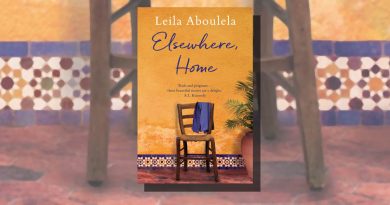Liberation in Literature @ Bare Lit Fest 27/02/2016
-Reviewed by Balihar Khalsa–
I work in TV and am trying to establish myself as a documentary maker, but have become acutely aware that there are very few role models who look like me (i.e. Asian women directors). It was with this mindset that I stumbled across the Bare Lit Festival on Twitter. The festival was put together to highlight the diverse work being created by Black, Asian and Ethnic Minority writers. Reading about it through the website ahead of the event I was excited to see panels with discussions around: liberation, (re) writing pasts and future and second generation poets in exile.
When I went on a Saturday morning to the panel discussion on Liberation in Literature, at the Free Word Centre, I was glad to see a room of people from a broad range of backgrounds. The panel was made up of distinguished writers, chaired by author Radhika Swarup, drawing on a wealth of experiences to discuss whether literature can liberate. It quickly emerged that the panel had different interpretations of the concept.
Professor of Caribbean literature and author Joan Anim-Addo, who launched the first Black literature masters in the UK, opened up the conversation explaining that liberation is a principle by which she has lived her whole life. As a black woman of African Caribbean descent resistance is part of her experience and has become part of the community’s DNA, she continued.
Powerfully she posed her position by explaining: “Being a writer or a professor was never what I was supposed to be”. Writing has been a liberating experience for Joan, but she quickly pointed out the areas of the industry that needed improving. “There was a time when I searched for black women characters in literature”, she explained, “There are still immense difficulties around agents – the likelihood of being represented by an agent is minuscule. There is huge under representation at every level of production: publishing, agents, writers. It has to change.”
The lack of black characters in English literature was also raised by erotic fiction novelist Sareeta Domingo. “Representation is also an issue in liberation. In romantic fiction you often don’t see people of colour in those stories”, she explained. Her view on liberation was that writers have to be free to write honestly and truthfully. “There is a question on liberation about who is allowed to write and what you’re expected to write as a person of colour”, she said.
The panel touched on the fact that many black writers are expected to write about particular issues or topics and being pigeonholed. While Sareeta explained that she has never felt that, the other panellists explored this area further. Part of these expectations come from having audiences to cater to. Radhika posed the question: “As writers we are often addressing white female audiences – does that change perspective?”. Robin Yassin Kassab continued on the theme and raised the fact that with stories, particularly ones that evoke political connections, audiences can be stuck with big narratives. These create preconceptions and a lack of need to pay attention to the human level, which in turn can lead to people being labelled and stuck in boxes.
However, despite these issues Joan said: “People are more receptive to something that is fictionalised. They are in a frame of mind to receive info, if you contrast that to being bombarded by certain types of journalism.”
The power of fiction to look at stories through a different lens is incredibly helpful. Radhika explained: “Looking at historical fiction through one or two people is a way of getting out of the grand narratives that are often pushed on us. The India/Pakistan division displaced 16 million people and fiction will look at that history and turn a lens on it.”
Leila Aboulela added to this: “People relate to fictional characters, but in non-fiction they have a different view. When I write about the hijab for the Guardian the comments underneath it are very different to the reaction I get to my books.”
She also added for aspiring writers it is hugely important not to look back too much and never to ask for a reason for rejection. “I don’t want to hear there isn’t a market and I don’t want to know about pigeon-holing”, she explained.
With those words she personified the resolve that so many people have to succeed. The discussion had highlighted some of the most issues that writers of colour have to deal with and how even once writers are recognised and successful, there are still challenges to deal with. However, the one message I took away from the session was that liberation through literature is something that can be achieved, but only if more people of colour are involved in the industry. As Radhika explained, having a different perspective, one of an outsider, is a brilliant position to have as a storyteller. So, here’s to the outsiders.



